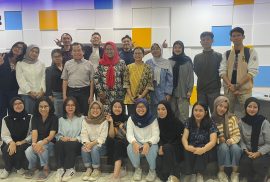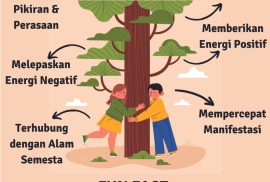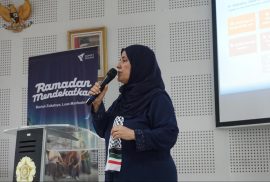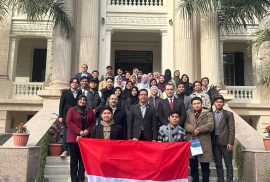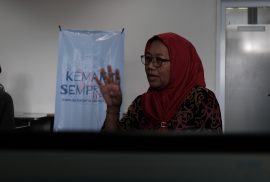A collaborative research study between the Department of Anthropology at Universitas Gadjah Mada (UGM) and the Department of Anthropology at Padjadjaran University (UNPAD) is currently underway (May – October 2024) focusing on eating habits and food-giving traditions for toddlers. The research, titled “Eating Habits and Food-Giving Traditions for Toddlers in Efforts to Prevent Stunting in Rural Sundanese Areas,” is being conducted by two researchers: Dr. Atik Triratnawati, M.A. from UGM and Erna Herawati, S.Ant., MA., PhD. from UNPAD. They are academics with extensive track records in anthropological research, particularly related to public health.
This study focuses on the eating habits and food-giving traditions for toddlers in Cileles Village, Jatinangor District, Sumedang, West Java. The village was chosen as the research site due to its paradoxical condition: despite having good access to natural resources and healthy food, it still has a relatively high stunting rate. This phenomenon indicates issues in consumption patterns and food-giving traditions. One interesting early finding is the high consumption of aci (tapioca flour)-based foods, which are suspected to contribute to the high stunting rate. Aci-based foods are often given as main meals, not just snacks, even to toddlers.
The main objective of this research is to enhance understanding of the eating patterns and food-giving traditions that can influence stunting in rural Sundanese areas. The study also aims to identify and promote local foods with good nutritional content while minimizing the provision of foods that can cause stunting. This research has broader implications in efforts to achieve Sustainable Development Goals (SDGs) points 1, 2, and 3, which are No Poverty, Zero Hunger, and Good Health and Well-being for all ages. By improving the nutrition of toddler food and educating the community about the importance of healthy eating patterns, it is hoped that significant improvements in the health and well-being of the people in Cileles Village and other areas with similar issues can be achieved.
The research involving Dr. Atik Triratnawati and Erna Herawati is expected to make a significant contribution to efforts to address stunting in rural Sundanese areas. By highlighting the importance of understanding eating habits and food-giving traditions and identifying healthier local foods, this study aims to encourage positive changes in community eating patterns. The output of this research will be published in a scientific journal in October 2024, making the results accessible to various interested parties, both academically and practically. Thus, it is hoped that this research will not only provide new insights but also serve as a foundation for more effective health policies and programs in the future.
Author: Afif Naufal Widiadi

